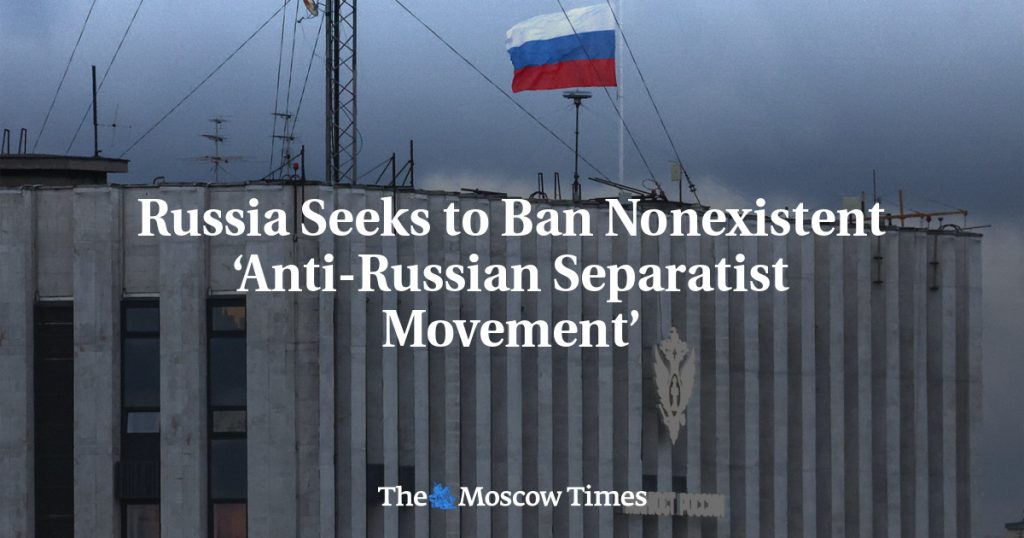The Russian Justice Ministry is seeking to ban what it refers to as the “anti-Russian separatist movement” as an extremist organization in an attempt to preserve the unity and territorial integrity of Russia. The ministry’s request to designate this movement as extremist is scheduled to be heard by the Supreme Court on June 7. However, no formal organization under this name could be found by the independent OVD-Info rights project. Observers have raised concerns that categorizing the movement as extremist could lead to the targeting of anti-war, indigenous, and decolonial activists in Russia.
This move is part of a broader crackdown on dissenting voices in Russia, as seen in the banning of other organizations such as the Free Nations League anti-imperial movement and the Forum of Free Peoples of Post-Russia by the Russian Prosecutor General’s Office. These groups were labeled as “undesirable” organizations due to their advocacy for Russia’s disintegration. The Supreme Court has a history of banning non-existent organizations as extremist, such as the “international LGBT public movement” and the “Ya/My Furgal movement” supporting the ex-governor of the Far East Khabarovsk region. The ban on the “LGBT movement” in 2023 has resulted in a crackdown on LGBTQ+ identity and lifestyles in public spaces.
The vague definition of what constitutes the “anti-Russian separatist movement” allows for broad interpretations that could be used to suppress various forms of dissent and activism. By equating advocacy for separatism with extremism, the Russian government is able to target any group or individual that challenges its authority or questions the country’s unity. This tactic is a means of maintaining control and silencing opposition voices within the country. The potential ban on the separatist movement positions it as a threat to Russia’s national security and sovereignty, justifying extreme measures to prevent its activities.
The designation of the “anti-Russian separatist movement” as an extremist organization sets a dangerous precedent for targeting dissent in Russia. By labeling certain groups as extremist without clear evidence or justification, the government is able to suppress political opposition and human rights activism. This move undermines freedom of expression and assembly, as well as the right to peaceful protest. It also raises concerns about the treatment of minorities and marginalized communities who may be unfairly targeted under the guise of combating extremism.
The ban on the “anti-Russian separatist movement” highlights the Russian government’s increasing use of authoritarian measures to maintain its grip on power. By criminalizing dissent and labeling peaceful activists as extremists, the government is escalating its crackdown on civil society and independent voices. This move not only stifles political debate and diversity of opinion but also erodes democratic principles and human rights protections in Russia. The international community must closely monitor this situation and speak out against these repressive actions to ensure the protection of fundamental freedoms and the rule of law in Russia.
In conclusion, the Russian government’s attempt to ban the “anti-Russian separatist movement” as an extremist organization is part of a broader crackdown on dissent and activism in the country. By using vague definitions and broad interpretations, the government aims to suppress political opposition and silence voices challenging its authority. This move undermines freedom of expression and assembly, as well as the rights of minorities and marginalized groups. The international community must condemn these repressive actions and support efforts to protect fundamental freedoms and human rights in Russia. Only through solidarity and advocacy can we ensure that all individuals have the right to express themselves without fear of persecution.


